CSUMB Magazine
News Briefs
Published Dec. 20, 2019
Otter Athletics inducts inaugural Hall of Fame members
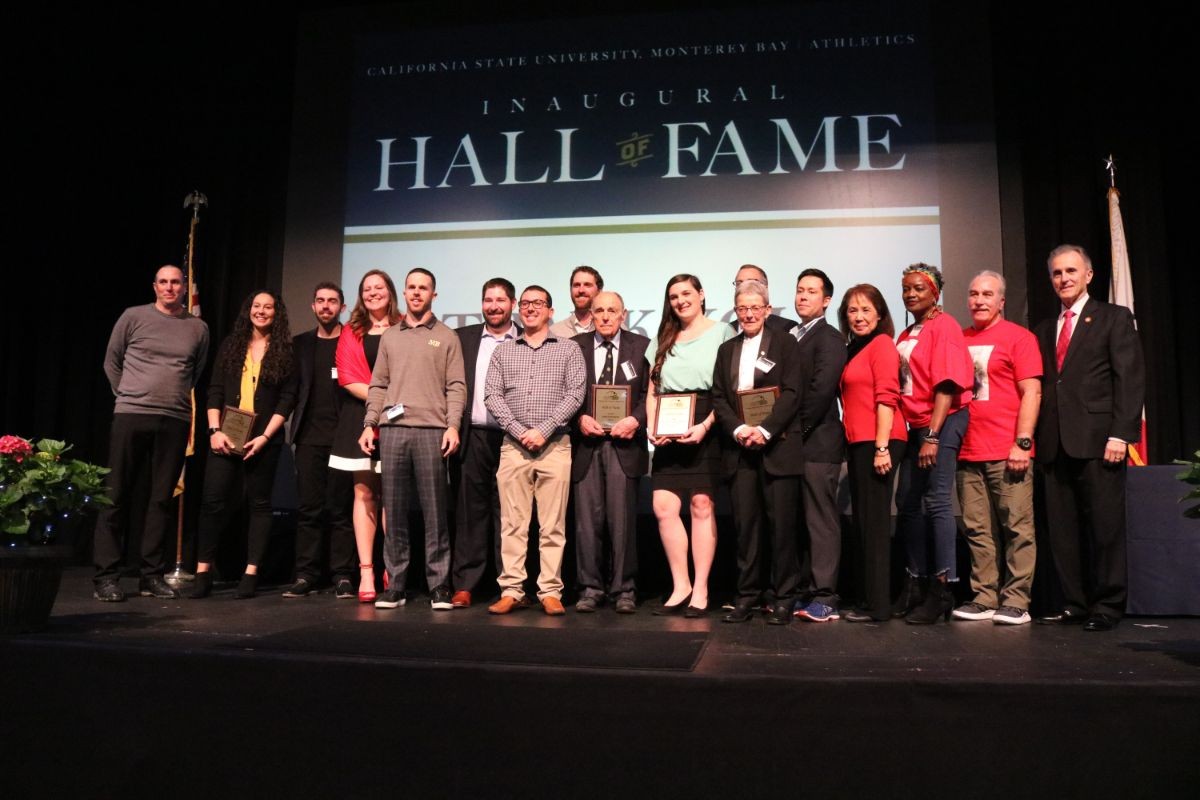
California State University, Monterey Bay, announced its inaugural Athletics Hall of Fame class this year. The first honorees — including eight student-athletes, two coaches and one national championship team — were inducted on Feb. 16, 2019, at the University Center.
“Our Hall of Fame allows us to recognize individuals who have shaped our identity and contributed significantly to the growth of our university and athletics programs,” Director of Athletics Kirby Garry said. “(We) look forward to building on this new tradition in future years.”
In alphabetical order, the inductees were: Dana Andrews – Women’s Basketball (2006-09), all–time leading scorer; Bobbi Bonace – Administrator/Coach (1996-2007), first director of intercollegiate athletics; Cicillia Chudivan – Women’s Golf (2007-10), All-American, all-time winningest golfer; Rheann Fall – Volleyball (2008-11), All-American, career kills leader; Brian Haggett – Baseball (2012-13), first Academic All-American; Bob Johnson – Community supporter, passionate backer of Otter Athletics and CSUMB; Devougn Lamont – Men’s Basketball (2005-06), first player to average 20 points per game; Chealsea (Laning) Brown – Water Polo (2005-08), career record holder for goals and points; Ashlee Trotter – Softball (2006–09), captain of first California Collegiate Athletic Association (CCAA) championship team; Bill Trumbo – Administrator/Coach (2000-06), led CSUMB to NCAA Division II membership; Erik Uppman – Cross Country (1998-2001), captain of first conference championship team (California Pacific Conference); Team of Distinction – 2011 Men’s Golf Team, CSUMB’s first national championship team.
CSUMB launches innovative Responsible Business MBA
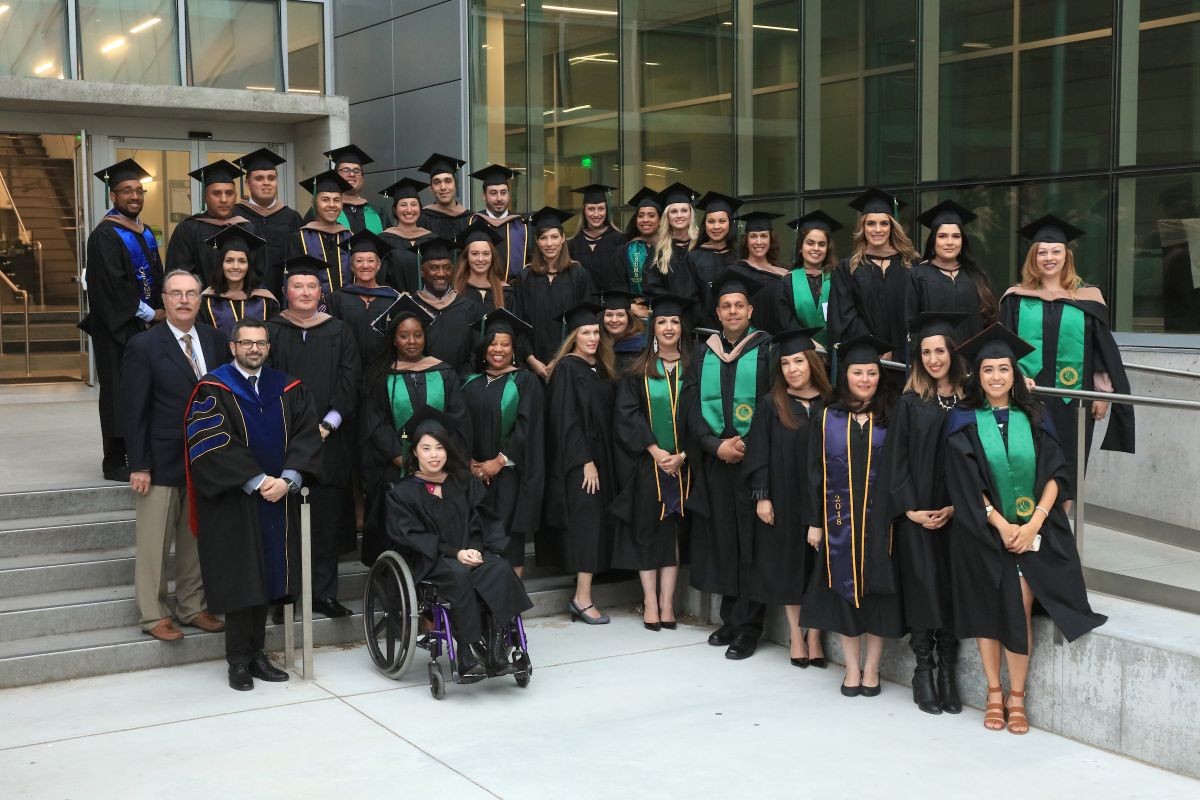
The College of Business at CSUMB launched the world’s first Responsible Business Master of Business Administration (MBA) degree program in fall 2019. The entirely new curriculum is designed around the theme of “Innovation, Responsibility, Impact,” with a quintuple bottom line adding “Ethics” and “Equity” to the traditional triple bottom line of “People, Planet, Profit.”
“We’re emphasizing critical systems thinking, continuous improvement, integrated communications, and creative problem solving — in an expanded quintuple bottom line context — to develop the Responsible Business mindset and toolkit,” Dean Shyam Kamath said.
Responsible Business goes beyond the triple bottom line to educate business leaders to develop and transform organizations into 21st-century business models. The quintuple bottom line enables businesses to achieve financial success while taking care of valuable human and environmental resources, Kamath said.
With busy working professionals and executives in mind, the program is 100% online to offer maximum flexibility. The curriculum consists of 38 units delivered in sequence across 14 individual courses. The online MBA degree can be earned in as few as 18 months. “The faculty have thoughtfully created a unique education experience,” said Nicolas Dahan, program director. “It builds on the university’s tradition of concern for community, ethical leadership, social justice, and environmental stewardship.”
Go online to mba.csumb.edu to learn more.
WASC grants accreditation for 10 more years
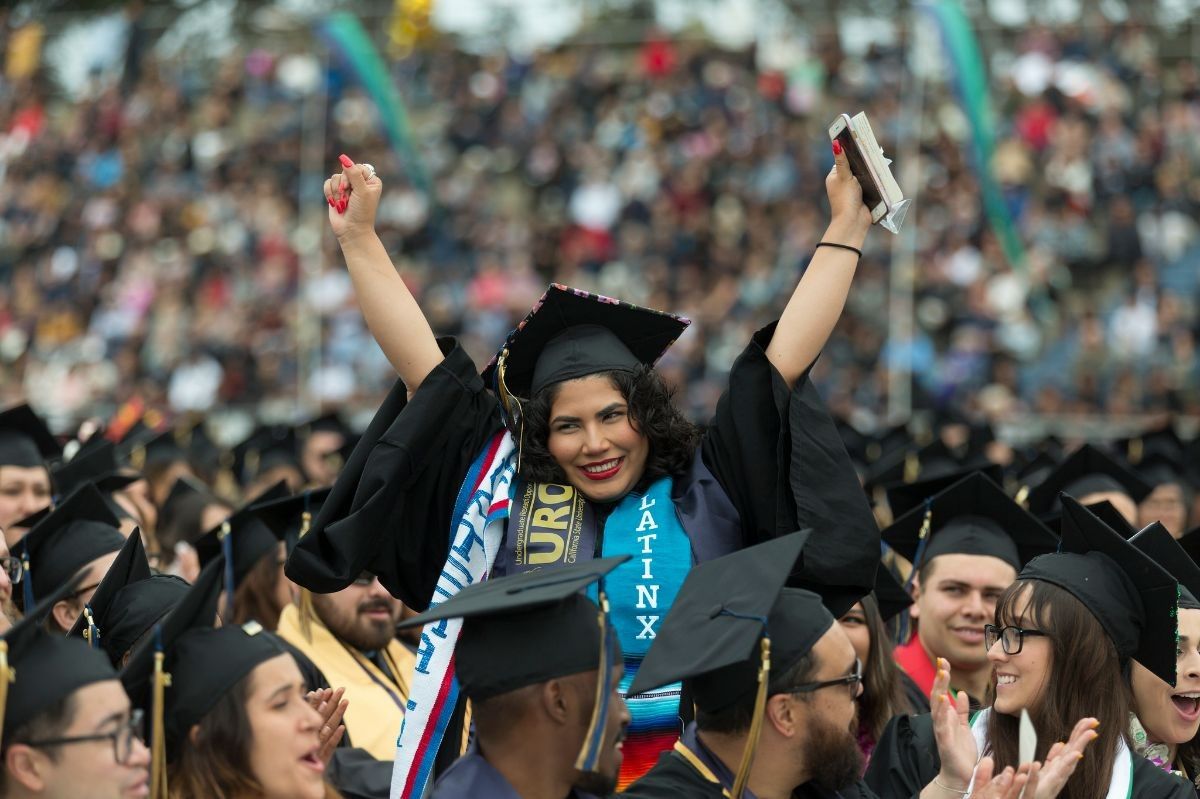
California State University, Monterey Bay (CSUMB) achieved reaffirmation of its accreditation from the Western Association of Schools and Colleges (WASC) in July 2019. The reaffirmation is for 10 years, the longest achievable period of accreditation.
The WASC Senior College and University Commission (WSCUC) commended CSUMB in a number of areas, particularly the increase in graduation rates since 2011. A recent Chronicle of Higher Education publication recognized CSUMB as one of three public universities in the U.S. with the greatest improvements in graduation rates. The Commission also praised the university for its commitment to the whole student, a culture of innovation and strong regional stewardship.
“I would like to thank all the many faculty, staff and administrators who made this achievement possible through their on-going and lasting commitment to reflection and improvement which was visible throughout the Institutional Report submitted to WSCUC as part of the reaccreditation effort,” President Eduardo M. Ochoa said.
Accreditation aids institutions in developing and sustaining effective educational programs and assures the educational community, the general public, and other organizations that an accredited institution has met high standards of quality and effectiveness.
CSUMB professor, researchers decode white shark genome
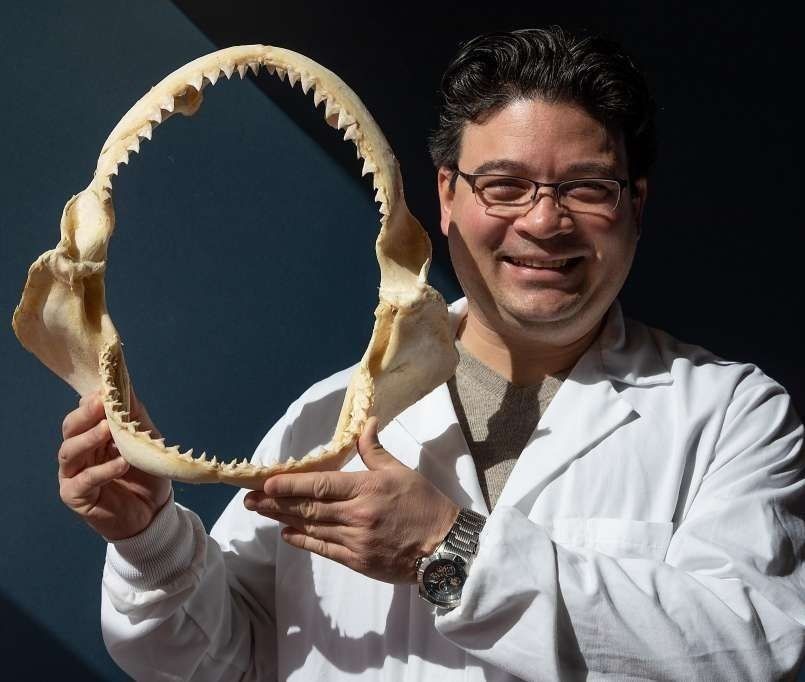
Assistant Professor Nate Jue with the School of Natural Sciences at Cal State Monterey Bay collaborated with an international team of researchers to decode the entire genome of the white shark. The results of their study were announced in March 2019 and marked a major scientific breakthrough which could assist in cancer prevention in humans.
The findings were published in the scientific journal “Proceedings of the National Academy of Sciences.” Through comparisons with other species, genetic adaptations in the white sharks can help scientists better understand how important processes like the repair of damaged DNA may function in other organisms including humans.
The researchers discovered unique blood-clotting and cancer-protection genes within the white shark genome. Further studies may assist medical researchers in their efforts to prevent cancer, treat age-related ailments and heal injuries in humans.
In addition, researchers were shocked to discover the size of the white shark genome measured approximately one-and-a-half times the size of the human genetic code. Decoding the white shark genome may also assist with the conservation of this often feared, yet vulnerable species by providing information about white shark population dynamics.
News Briefs
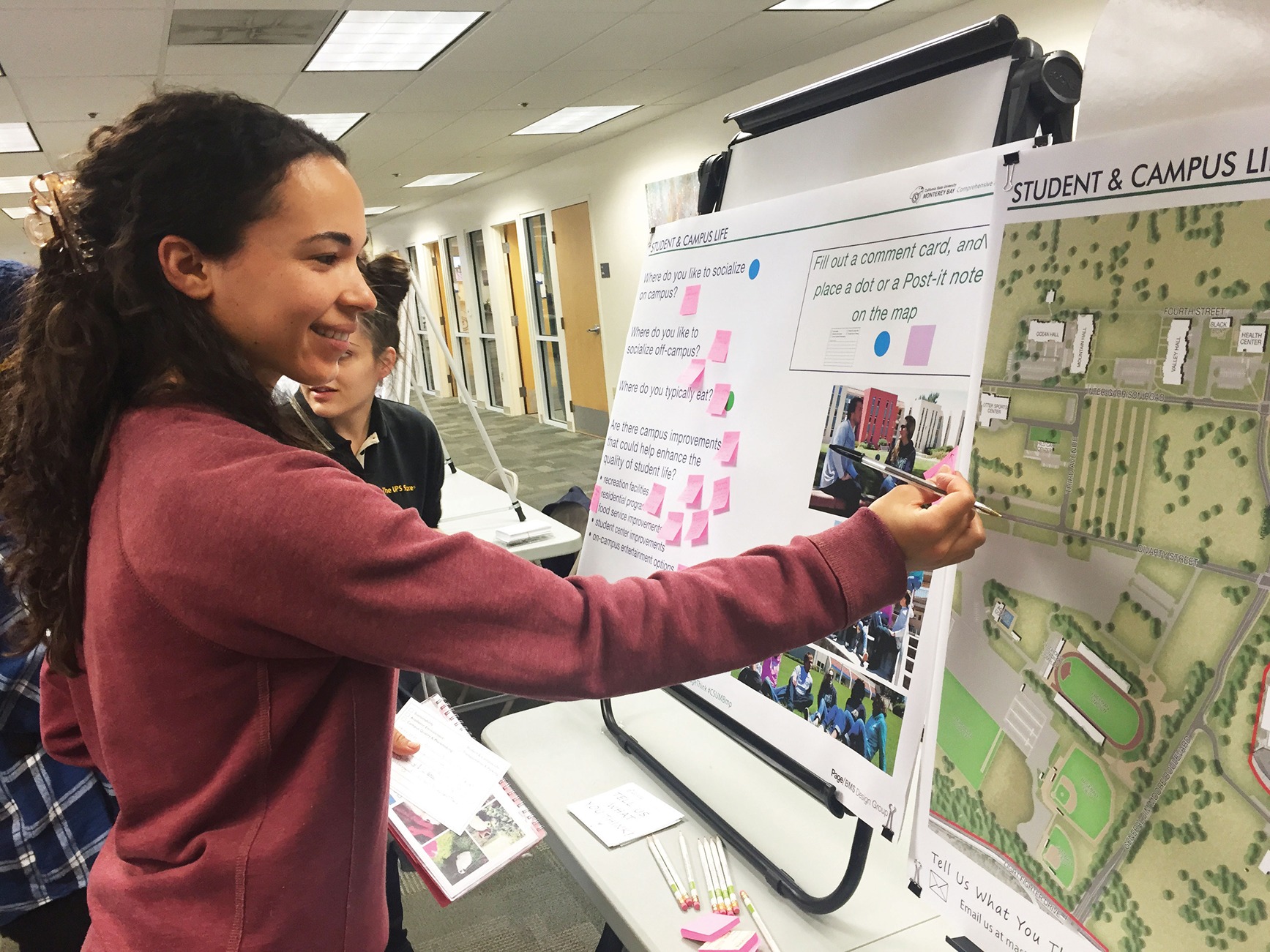
Since the university opened in 1995, the campus has grown from 650 students in repurposed buildings on a former Army base to a 21st century institution for teaching, research and innovation.
To accommodate the expected growth to 12,000 students by 2024, the campus master plan is being updated. The master plan provides a road map for growth and renewal of the campus. It includes academic needs such as classrooms and labs; student and residential life, such as a student union, recreation center and housing; infrastructure; sustainability; transportation; and connections with neighboring communities. The draft is expected to be completed by the end of the year.
After a series of meetings with campus groups to start the process, it became clear that there is an interest in making the campus more pedestrian- and bike-friendly.
Page/BMS Design Group of San Francisco has been hired to lead the process.
Marina, university team up on student housing project
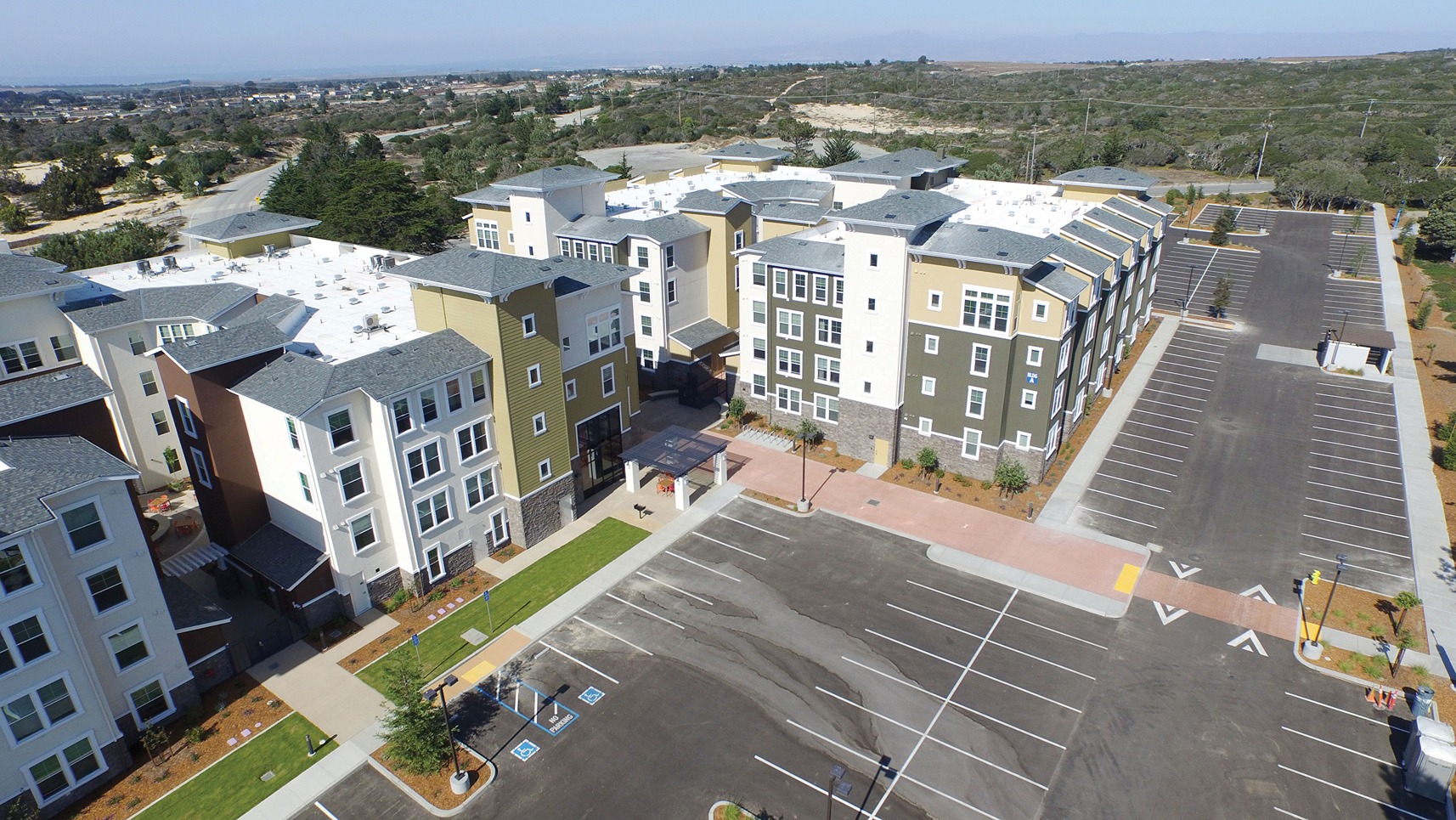
It’s about as far as you can get from dormitory life. The Promontory, a student housing complex just north of campus in Marina, opened in August. It’s the first new housing to come online since 2004. The project consists of three 150,000-square-foot, four-story buildings, with a total of 174 units and 579 beds. All units — which range from one to four bedrooms —come with a microwave, stove/range, dishwasher and washer and dryer.
The development has plenty of perks that have proven popular with students: a two-level fitness center, a game room with pool table, study rooms, a cyber café with kitchen, and a theater. Each of the buildings has an interior courtyard.
The project was built to LEED silver standards. It is the first joint housing venture between the city of Marina and CSUMB.
CSUMB acquires National Steinbeck Center

California State University, Monterey Bay and the National Steinbeck Center have completed a deal that will bring the university to the city of Salinas.
Under terms of the deal, negotiated among the university, the Steinbeck Center and the city of Salinas, CSUMB’s corporation purchased the building for $3 million. In addition, CSUMB paid the city $100,000 for the land beneath the building.
The Steinbeck Center will remain as a tenant, with an 80-year lease.
“This is our front door to Salinas and we’re going to use this as a way to connect to the community and respond to their needs,” said CSUMB President Eduardo Ochoa.
The University Corporation at Monterey Bay is a non-profit 501(c)(3) auxiliary organization that operates as the business arm of the university. It provides direct support for a number of university programs and activities.
The university is considering how to use the space. Possibilities include cultural and educational programming and outreach by staff members from CSUMB’s admissions and financial aid offices. In addition, the space will continue to be available as a resource for the community.
“We are planning on engaging the campus and our partners in Salinas in discussions of how we might best advance the mission of the university and meet community needs,” said CSUMB Provost Bonnie Irwin.
Art donations bring campus to life

Walk into the library and look around. Many of the walls have color and character thanks to the multiple pieces of beautiful art that decorate the walls. These pieces, along with pieces displayed throughout campus, are made possible by the University Art Committee – and more is on the way.
The University Art Committee, comprised of Holly Ochoa, administrators, faculty, staff and students, is a recommending body to the President that facilitates the acquisition and placement of donated art throughout campus. Many pieces are possible thanks to the generosity of an anonymous donor.
The artists represented among the works that CSUMB has been gifted include Eleen Auvil (the copper panel piece at the library stairwell), Susan Manchester, Barry Masteller, Amy Ellingson, Chris Winfield, Charles Eckart, Lucas Bloc, Cynthia Ona Innis, Susan Parker, Rick Arnitz, and Jamie Brunson. In the library reference area, the Cornwell mural is displayed on loan from the Monterey Museum of Art.
In addition, a three piece work by Vern Trindade, recently exhibited at the Triton Museum in San Jose, will be mounted in the near future at the library. For more information or to inquire about making art donations, contact the committee chair, Ilene Feinman, dean of the College of Arts, Humanities and Social Sciences, at ifeinman@csumb.edu.
News Briefs

Since the university opened in 1995, the campus has grown from 650 students in repurposed buildings on a former Army base to a 21st century institution for teaching, research and innovation.
To accommodate the expected growth to 12,000 students by 2024, the campus master plan is being updated. The master plan provides a road map for growth and renewal of the campus. It includes academic needs such as classrooms and labs; student and residential life, such as a student union, recreation center and housing; infrastructure; sustainability; transportation; and connections with neighboring communities. The draft is expected to be completed by the end of the year.
After a series of meetings with campus groups to start the process, it became clear that there is an interest in making the campus more pedestrian- and bike-friendly.
Page/BMS Design Group of San Francisco has been hired to lead the process.
Marina, university team up on student housing project

It’s about as far as you can get from dormitory life. The Promontory, a student housing complex just north of campus in Marina, opened in August. It’s the first new housing to come online since 2004. The project consists of three 150,000-square-foot, four-story buildings, with a total of 174 units and 579 beds. All units — which range from one to four bedrooms —come with a microwave, stove/range, dishwasher and washer and dryer.
The development has plenty of perks that have proven popular with students: a two-level fitness center, a game room with pool table, study rooms, a cyber café with kitchen, and a theater. Each of the buildings has an interior courtyard.
The project was built to LEED silver standards. It is the first joint housing venture between the city of Marina and CSUMB.
CSUMB acquires National Steinbeck Center

California State University, Monterey Bay and the National Steinbeck Center have completed a deal that will bring the university to the city of Salinas.
Under terms of the deal, negotiated among the university, the Steinbeck Center and the city of Salinas, CSUMB’s corporation purchased the building for $3 million. In addition, CSUMB paid the city $100,000 for the land beneath the building.
The Steinbeck Center will remain as a tenant, with an 80-year lease.
“This is our front door to Salinas and we’re going to use this as a way to connect to the community and respond to their needs,” said CSUMB President Eduardo Ochoa.
The University Corporation at Monterey Bay is a non-profit 501(c)(3) auxiliary organization that operates as the business arm of the university. It provides direct support for a number of university programs and activities.
The university is considering how to use the space. Possibilities include cultural and educational programming and outreach by staff members from CSUMB’s admissions and financial aid offices. In addition, the space will continue to be available as a resource for the community.
“We are planning on engaging the campus and our partners in Salinas in discussions of how we might best advance the mission of the university and meet community needs,” said CSUMB Provost Bonnie Irwin.
Art donations bring campus to life

Walk into the library and look around. Many of the walls have color and character thanks to the multiple pieces of beautiful art that decorate the walls. These pieces, along with pieces displayed throughout campus, are made possible by the University Art Committee – and more is on the way.
The University Art Committee, comprised of Holly Ochoa, administrators, faculty, staff and students, is a recommending body to the President that facilitates the acquisition and placement of donated art throughout campus. Many pieces are possible thanks to the generosity of an anonymous donor.
The artists represented among the works that CSUMB has been gifted include Eleen Auvil (the copper panel piece at the library stairwell), Susan Manchester, Barry Masteller, Amy Ellingson, Chris Winfield, Charles Eckart, Lucas Bloc, Cynthia Ona Innis, Susan Parker, Rick Arnitz, and Jamie Brunson. In the library reference area, the Cornwell mural is displayed on loan from the Monterey Museum of Art.
In addition, a three piece work by Vern Trindade, recently exhibited at the Triton Museum in San Jose, will be mounted in the near future at the library. For more information or to inquire about making art donations, contact the committee chair, Ilene Feinman, dean of the College of Arts, Humanities and Social Sciences, at ifeinman@csumb.edu.
News Briefs
Published Feb. 2, 2019
Salinas Center for Arts & Culture celebrates one-year anniversary
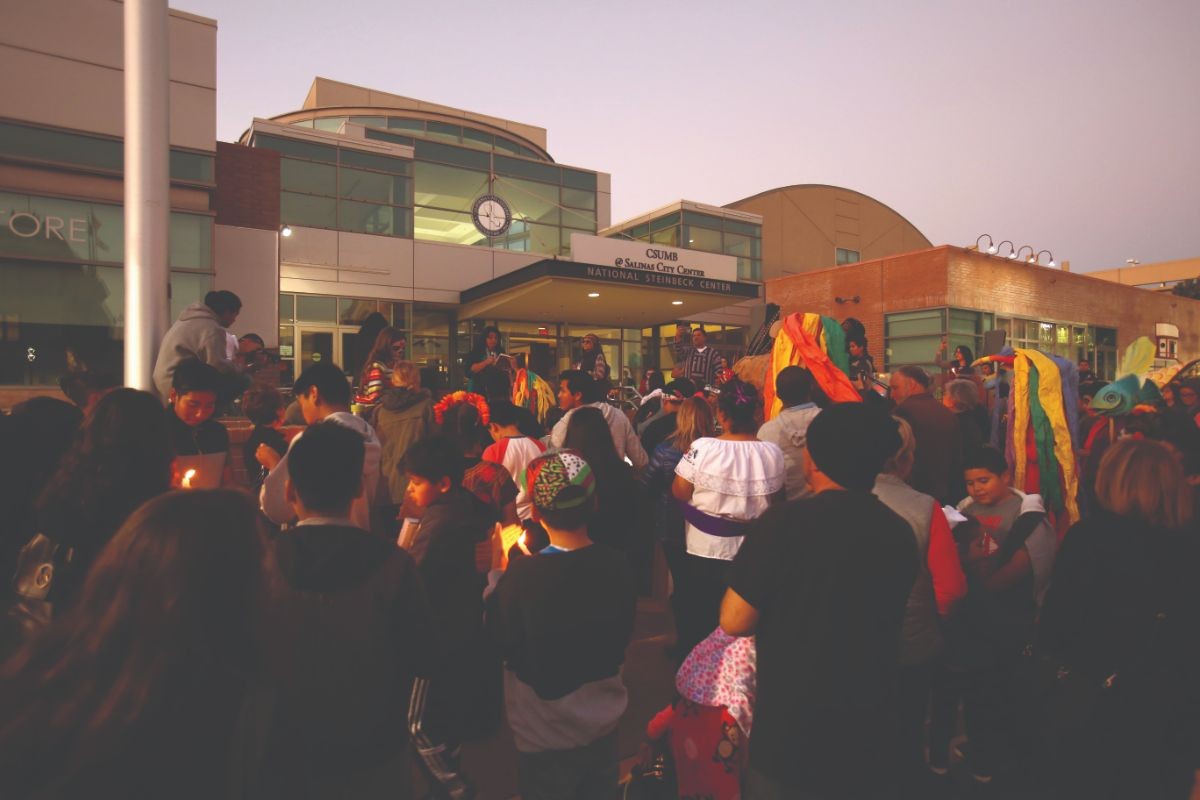
California State University, Monterey Bay’s Salinas Center For Arts and Culture officially celebrated its first anniversary with a series of Dias de Muertos events on Friday, Nov. 2, 2018. The center is housed within CSUMB @ Salinas City Center and strives to create a community of artists and a culture of activism in Salinas.
Over the past 12 months, the center has hosted a wide range of events, all free and open to the public, to include monthly First Friday events. Along with community-centered events encouraging local residents to visit, the center has held countless exhibitions featuring artwork from local artists and CSUMB students.
The center serves as a pivotal piece in extending CSUMB’s impact into the Salinas community and upholding the mission and vision of CSUMB. Hosting open community events is in keeping with CSUMB’s role as a community resource, providing forums for provocative discussions that can impact thought and action on issues important to our community.
Director Enid Ryce said the center serves as a boon for students as well, with “opportunities to create exhibitions, work in collaboration with community partners, and be in conversation with national figures in arts and humanities.”
Grant supports continued growth of Teacher Pathway Program
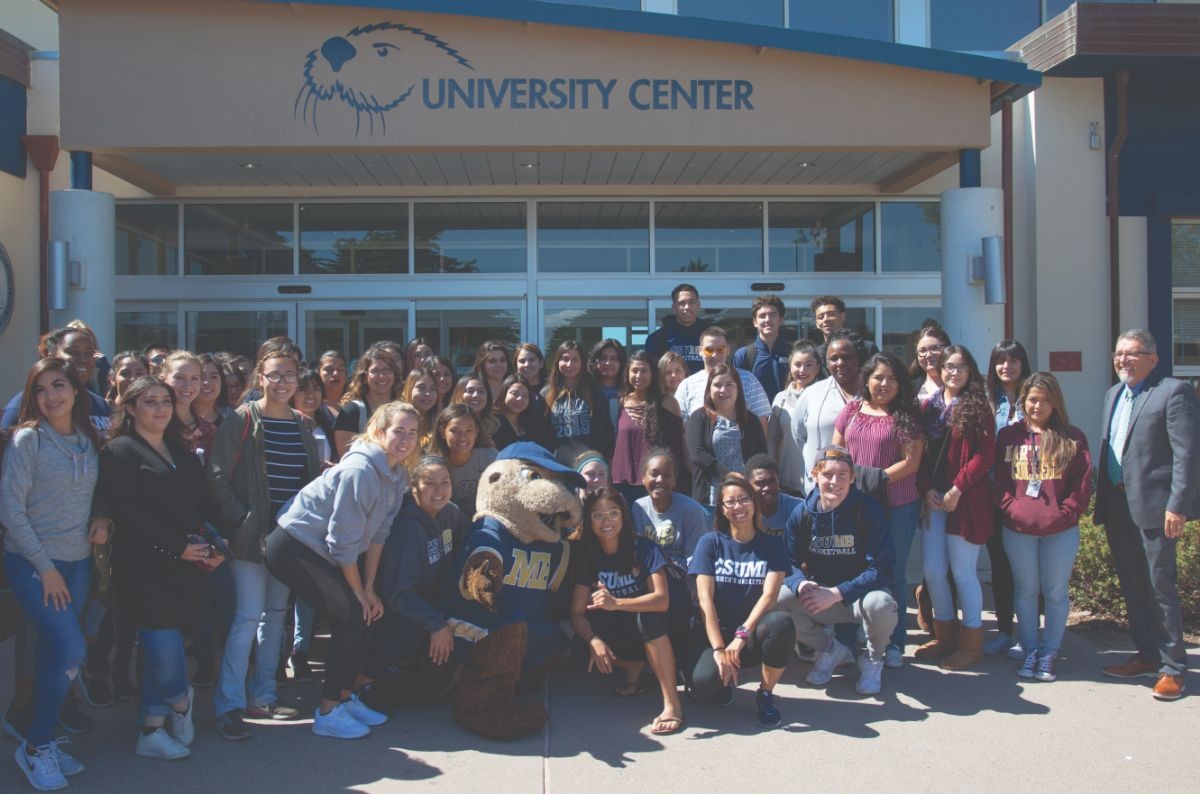
Hartnell College and California State University, Monterey Bay’s joint Teacher Pathway Program received a $335,000 grant from The Claire Giannini Fund last Fall that will help ensure the program’s continued growth and success. The program prepares fully-qualified elementary and special education teachers for Monterey County communities, with an eye towards sustainability.
The first cohort of the program, which began in fall 2016, has entered its third year. Students have achieved an 86 percent graduation rate — a much higher graduation rate than students enrolled in a traditional program — and earned their associate’s degree for transfer in two years. The first cohort is now working to earn their bachelor’s degrees in liberal studies and teaching credentials at CSUMB.
The Teacher Pathway Program is a collaborative “grow-our-own” solution to addressing the regional teacher shortage, said CSUMB College of Education Dean Jose Luis Alvarado.
The unique partnership, along with the streamlined program design, reduces the time it takes to transfer, thereby reducing costs to the participants.
The success of the program has resulted in expansion to new locations in South Monterey County and Salinas, and an enrollment increase of 80 percent with 28, 38 and 42 students in each cohort over the last three years.
Congressman Panetta introduces bill supporting veteran students
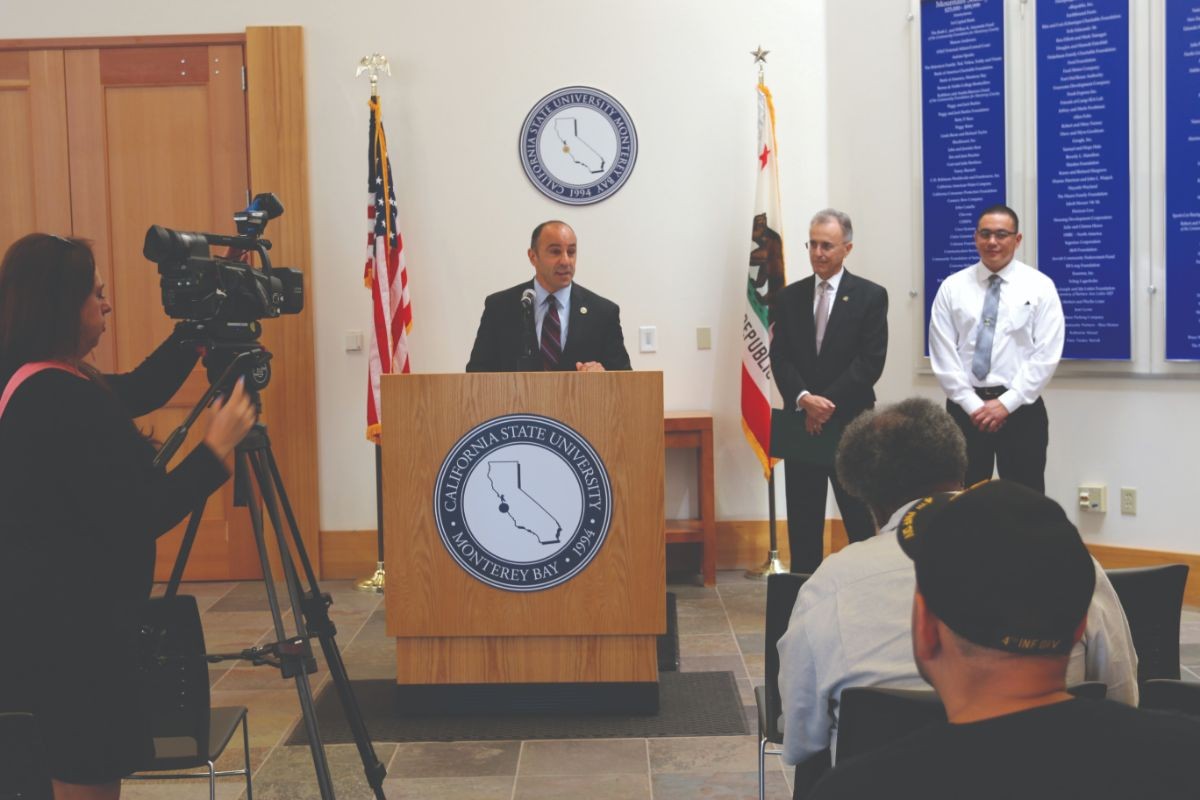
Congressman Jimmy Panetta, D-Carmel Valley, introduced the Veterans Resource Center Act during a press conference last fall at CSUMB. The legislation would authorize the Department of Veterans Affairs to provide federal grants to public universities to establish, maintain, and provide services at Veterans Resource Centers on campuses. It also incentivizes priority registration for veteran and military-connected students.
The legislation, co-sponsored by Nebraska Congressman Don Bacon, empowers universities to establish support centers modeled after the proven success of the California State University system’s Veteran Success Centers. CSUMB currently has more than 50 veteran students and a Veteran Student Services center that provides information on campus resources, veteran benefits, veteran service organizations, and social and study opportunities.
“Federal tuition support under the Post-9/11 G.I. Bill expires after three years, pressuring veteran students to complete their degrees early,” Panetta said.
“This bill will help our veterans choose classes that fit their personal needs, allowing them to graduate on time, while simultaneously providing them social and educational support. While these support resources are utilized throughout the California State University system, including here at home at CSUMB, I look forward to expanding this service to universities and veterans across the country.”
CSUMB business students attend West Point ethics conference
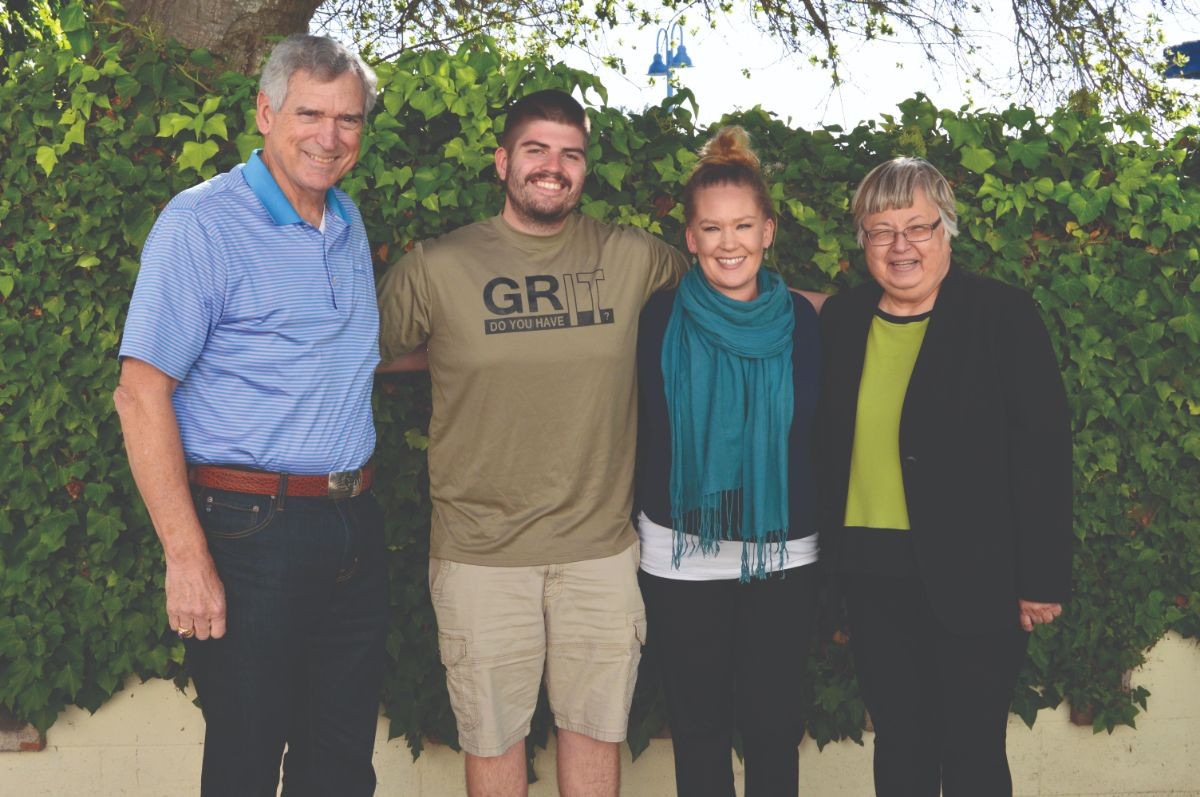
Two CSUMB College of Business students participated in the 34th annual National Conference on Ethics in America (NCEA) at the United States Military Academy (USMA) in West Point, N.Y, in October. The two-day conference is part of the USMA Cadet Character Education Program, and outstanding civilian students from universities across the country are invited to attend.
Brandon Baughn, a business administration and marketing major, and Alice Oaks, who is studying business administration and accounting, were able to attend thanks to the generous support of a sponsor.
This year’s conference theme was “Grit: The Unyielding Determination to Prevail.” It aimed to inspire and challenge attendees to overcome obstacles to achieve their goals, as well as find innovative solutions for pressing problems.
Keynote speaker Shilo Harris, a retired U.S. Army Cavalry Scout, survived devastating injuries after his armored vehicle was struck by an improvised explosive device (IED) in Iraq. Other speakers included Karl Meltzer, an ultramarathon record holder; Capt. Shaye Haver, the first female Army Ranger; and Adrianne Haslet, the Boston Marathon bombing survivor who won ballroom dance competitions and ran Boston twice after losing a leg.
News Briefs
Applications soar for fall enrollment
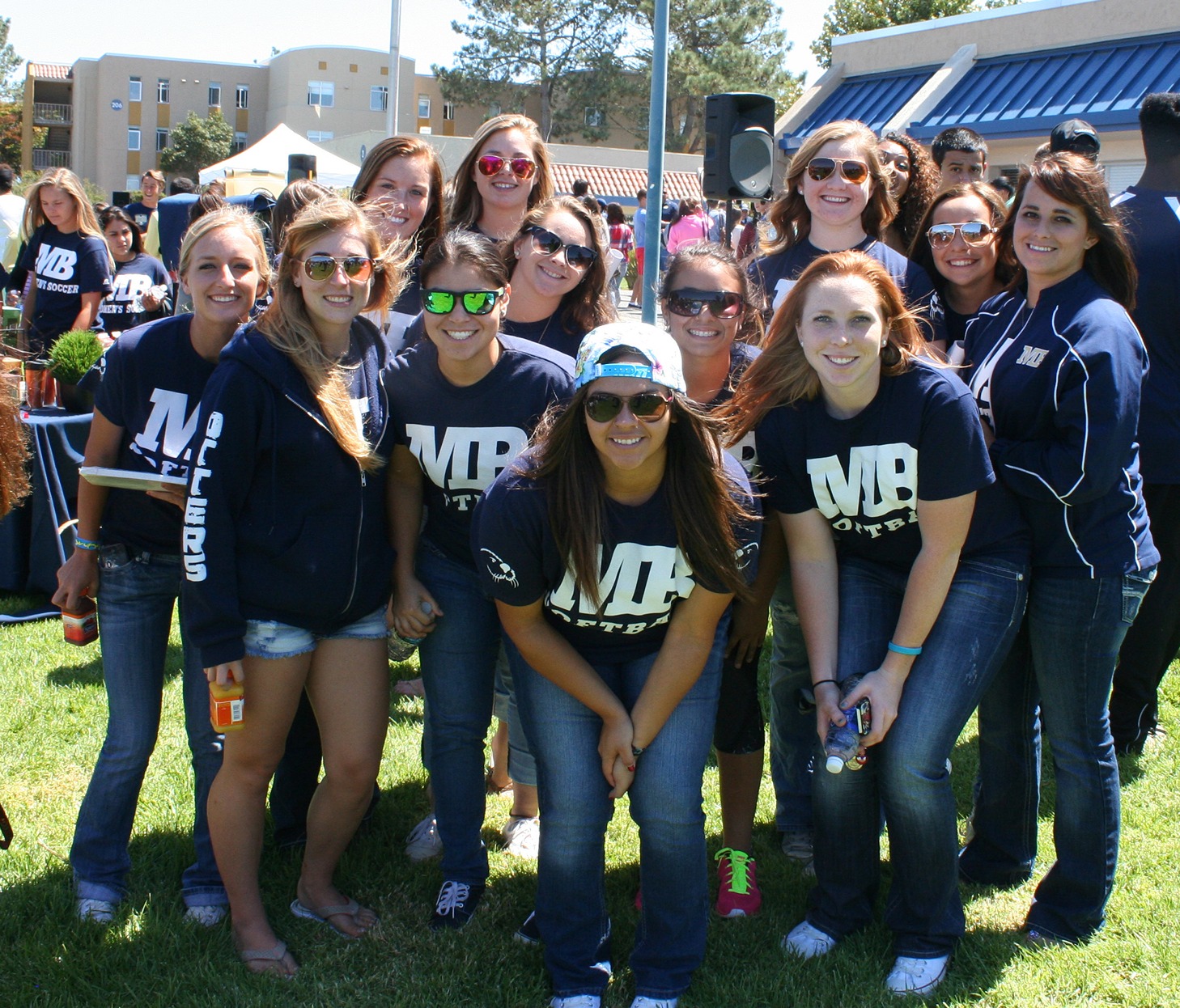
A record number of students applied to attend Cal State Monterey Bay for the Fall 2016 semester.
The university received 16,208 freshmen applications by the Nov. 30 deadline to apply. That’s up almost 5 percent from the previous year. The number of transfer students applying to attend CSUMB increased 15 percent to 4,124.
“We are slowing our enrollment growth to match available resources for Fall 2016,” said Dr. Ronnie Higgs, vice president for student affairs and enrollment services. “We anticipate the enrollment to be just under 7,000 students.”
The entire California State University system received a record number of applications for Fall, with more than 830,000 submitted by prospective students, marking a 4.8 percent increase and more than 40,000 applications over last year’s total.
“CSUMB is a first-choice institution,” Dr. Higgs said. “Students from the region, California and beyond know that CSUMB will prepare them for success.”
CSUMB expands its presence in Salinas
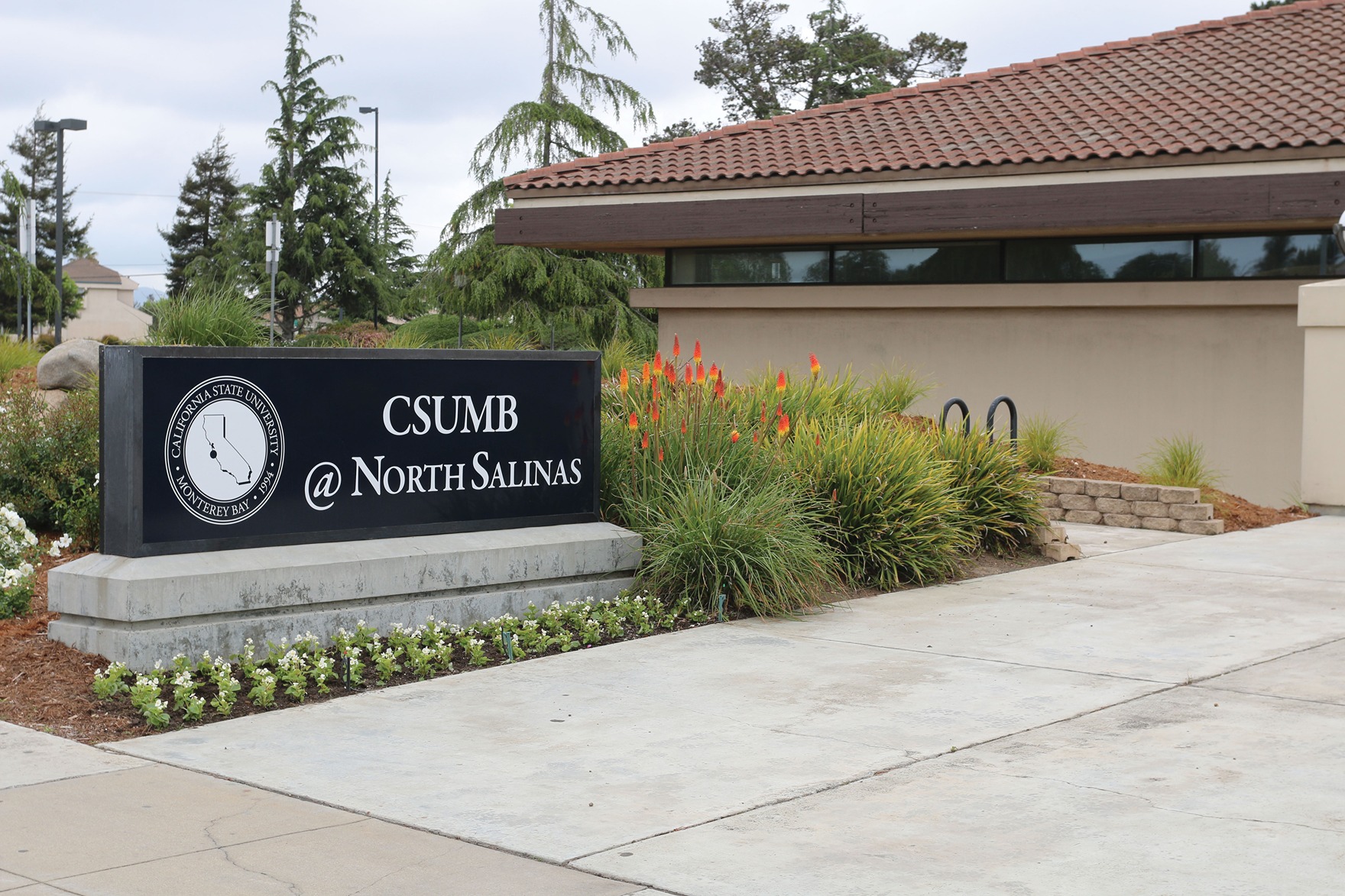
Cal State Monterey Bay has leased the main building vacated by last year’s closure of Heald College in Salinas and will begin offering classes in that facility later this year.
The lease, which went into effect Feb. 1, is for a 25,000-square-foot building located on North Main Street off Alvin Drive. The building includes 11 classrooms, several of which can serve as labs, and a number of offices. The facility will be known as CSUMB @ North Salinas.
“Leasing the building previously occupied by Heald College will allow us to increase our outreach and our course offerings to Salinas and the Salinas Valley,” said CSUMB President Eduardo Ochoa. “With the space crunch on our main campus, and the need to expand higher education opportunities in Salinas, this seemed to provide an ideal opportunity.”
The building has been vacant since April 2015, when the for-profit college’s parent company, Corinthian Colleges, Inc., closed its remaining campuses.
CSUMB first established a presence in Salinas last year, when the University Corporation purchased the National Steinbeck Center’s building in Oldtown.
Renovations are continuing on the building, to be known as CSUMB @ Salinas City Center. The National Steinbeck Center remains the name of the non-profit organization that manages the Steinbeck museum, which continues to occupy about half of the downtown structure.
$1 million grant creates data science program

Starting next fall, CSU Monterey will train students in the field of biomedical data science, thanks to a $1 million grant from the National Institutes of Health.
Biomedical data science is the application of statistics and computer science to biomedical problems. It has hundreds of applications, from tracking disease outbreaks to providing personalized medical care.
CSUMB will partner with UC Santa Cruz’s Center for Big Data in Translational Genomics over the five-year project.
“The emphasis for the program is really on the students and on preparing them for careers,” said Dr. Judith Canner, a CSUMB statistics professor and the principle investigator on the grant. The funding will enable CSUMB to create data science classes, train faculty, and fund student research - one of CSUMB’s strengths.
CSUMB professors will develop interdisciplinary coursework in data science, using classes offered at UCSC as a model. “UCSC is serving as a mentor institution,” Dr. Canner said. “They have a lot of courses and programs in this area, and we are just in the beginning stages of development.”
The ultimate goal of the grant is to enhance diversity in biomedical data science by opening up opportunities for CSUMB students who might not otherwise have access to such advanced training.
Students help with one city’s sustainability efforts
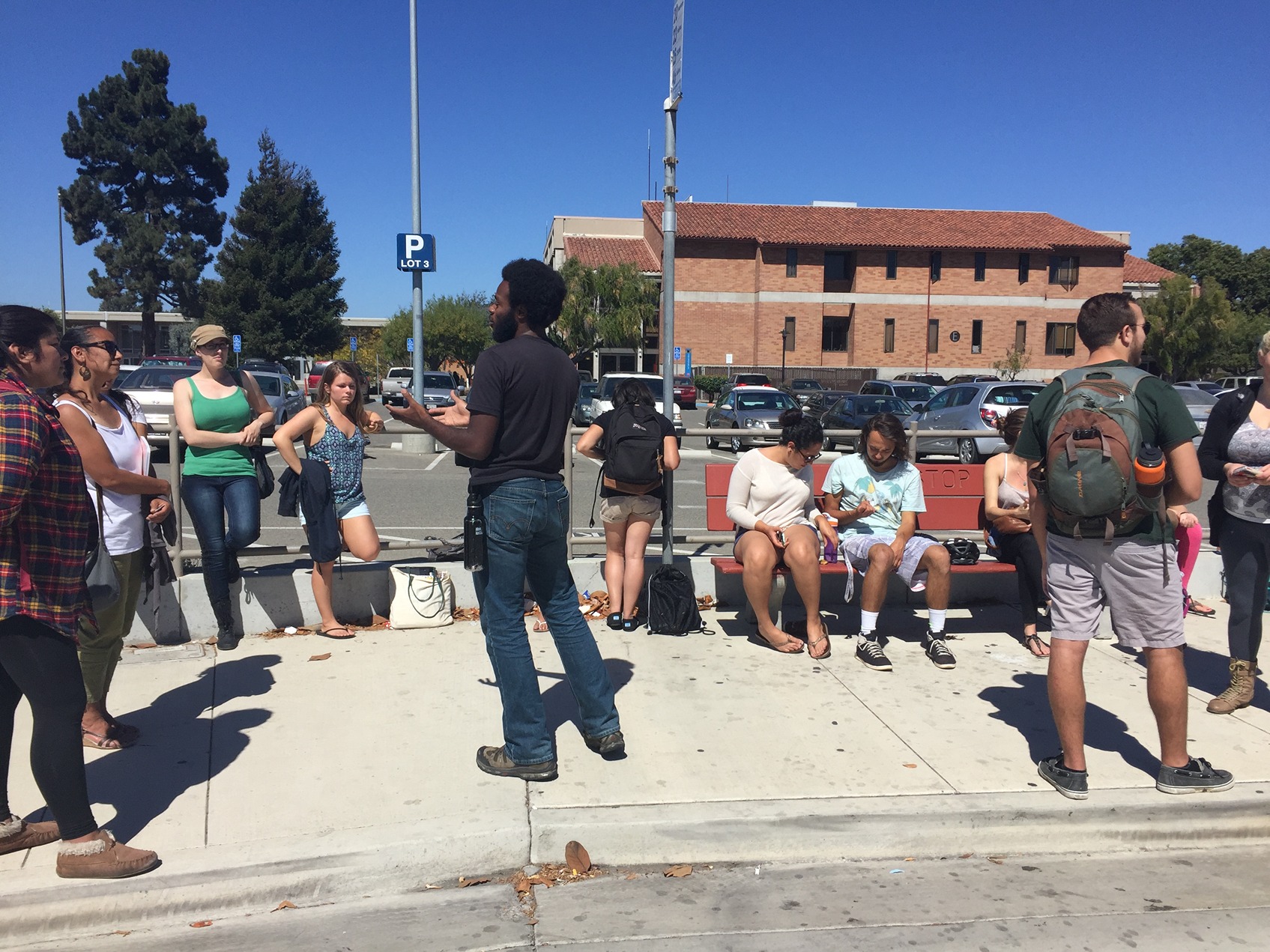
CSUMB has partnered with the city of Salinas as part of the Sustainable City Year Program. Dr. Dan Fernandez, professor of Science and Environmental Policy, is coordinating the effort.
The Sustainable City Year Program (SCYP) is a one-year partnership between the campus and an interested city partner. Regional cities often have projects that have some element of sustainability (mixed-use development, water conservation, improved signage, and increased access to bike or walkways, etc.) that they would like to undertake, but lack sufficient staff time or resources.
Through the program, CSUMB students have the opportunity to work on real-world problems, while the city benefits from the university’s expertise as it provides fresh perspectives on familiar issues.
Last fall, CSUMB completed its first semester of running this program. Three classes worked with Salinas on projects related to road design for West Alisal Street, analyzing the wealth of GIS data the city collects related to parking and infrastructure, and looking at parent-child interactions within public spaces. More classes are working with the city this semester.
Through this program, CSUMB has become a member of the Educational Partnerships for Innovation in Communities Network, including more than two dozen institutions across the country. CSUMB is the second school in the state of California to initiate this program.
News Briefs

When graduates cross the stage at commencement next May, they will join not only the Class of 2015, but also The Class of 3 Million – three million graduates of the California State University system.
It’s one of the largest alumni networks in the world.
To mark this milestone, 2015 graduates as well as alumni from all 23 CSU campuses are invited to “sign” The Class of 3 Million Yearbook. The online yearbook is a way for CSU alums to connect and build relationships with one another.
Everyone who signs the yearbook will be entered to win one of three $10,000 scholarships for a current or future student. All 2015 grads will receive Class of 3 Million silicone wristbands in time for commencement ceremonies.
Sign the yearbook at Classof3Million.calstate.edu.
Professor, grad student work to protect Big Sur River
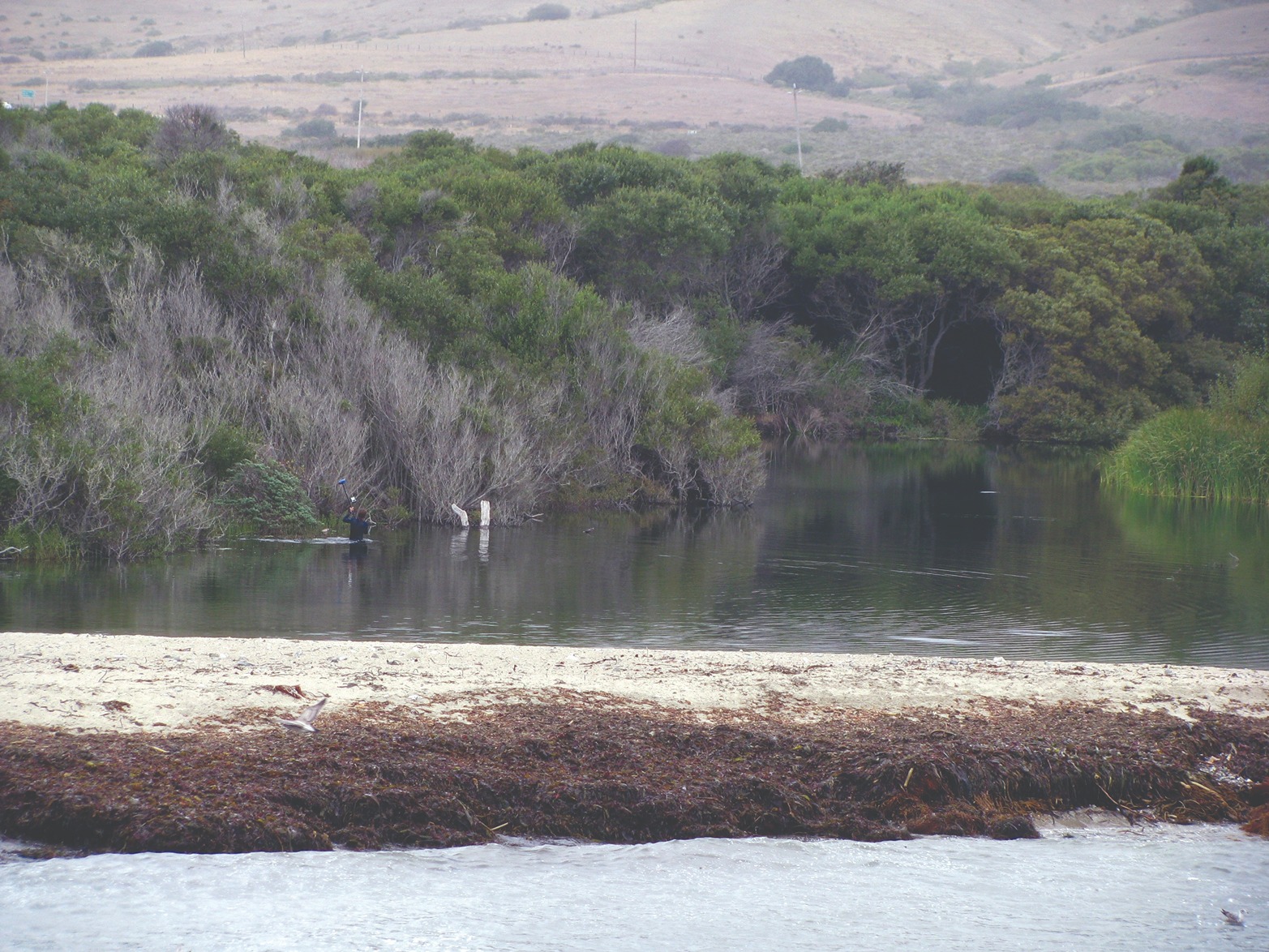
Cal State Monterey Bay Professor Doug Smith and graduate student Sam Phillips are collaborating with federal and state resource agencies to develop the Big Sur River Watershed Management Plan. The plan summarizes the environmental condition of the watershed and details the steps that residents and resource managers can take to sustain the local salmon population.
The Big Sur River and other ecologically critical streams and wetlands are constantly threatened by human activities that alter how water flows over and through the landscape. Urbanization and agricultural impacts are the leading cause of declining salmon populations along California’s Central Coast. While some impacts are inevitable, they can be markedly reduced or avoided through thoughtful and well-considered planning.
Resource managers can use the Big Sur management plan to apply for state and federal funding to make improvements that will help this important species thrive far into the future. Phillips used a wide range of cutting-edge tools in the project. The internship experience helped him land a position as a Fish Habitat Specialist with Eco Logical Research, Inc.
Study could yield changes in fishing behavior
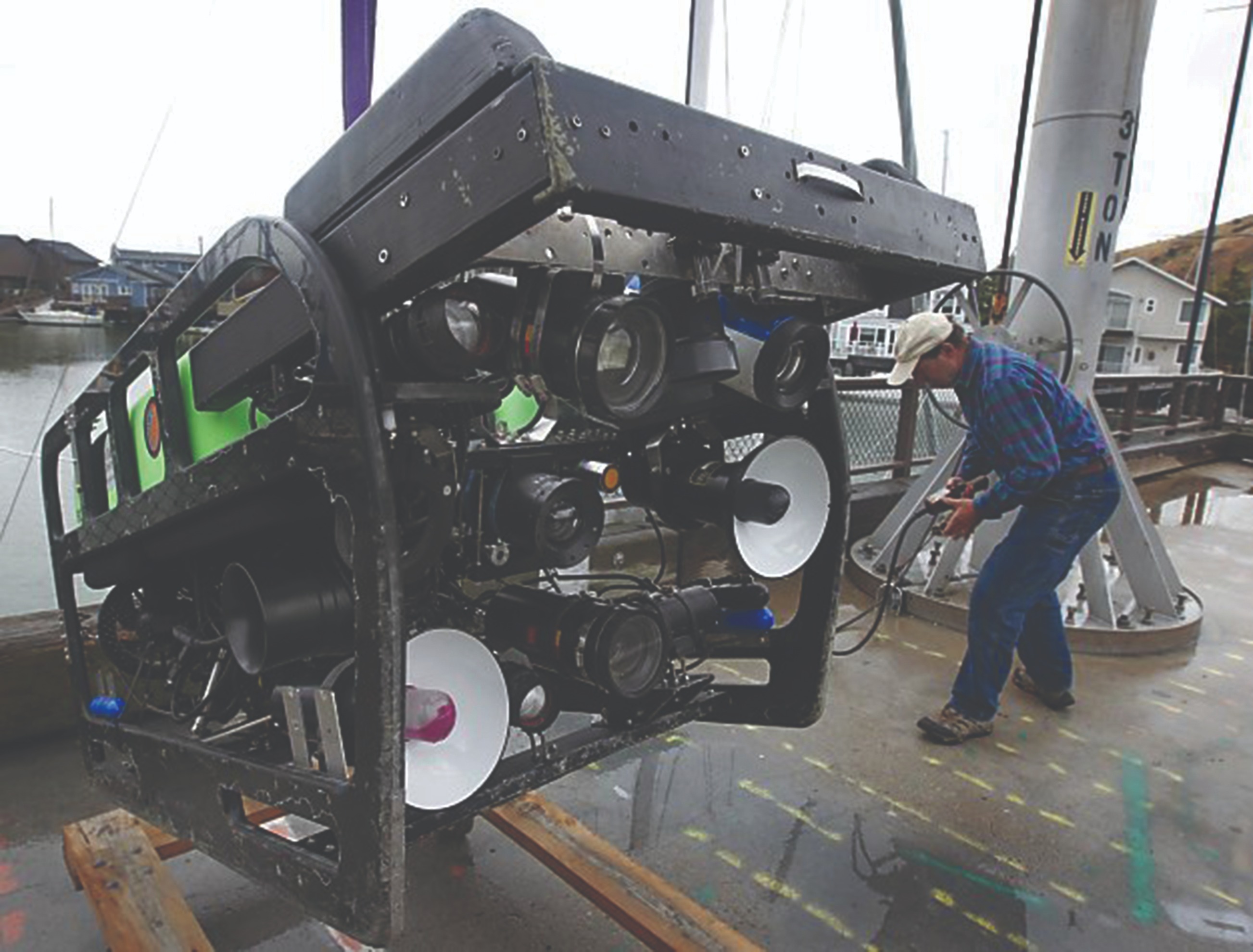
With a $320,000 grant from the National Oceanic and Atmospheric Administration and help from several partners, Professor James Lindholm will study how the impact of traditional trawling on the seafloor may be reduced by using modified gear.
In traditional bottom trawling, large nets are dragged across the seafloor, altering fish habitats that occur there. Dr. Lindholm’s study will compare the impacts of traditional gear to newly modified gear that significantly reduces contact with the seafloor.
The project will start next summer off Half Moon Bay. “We hope the study will yield insights that result in changes in fishing behavior,” Dr. Lindholm said.The project is a collaborative effort among CSUMB, the Environmental Defense Fund, the Monterey Bay National Marine Sanctuary and fisherman Giovanni Pennisi.
Catch CSUMB on tv

In partnership with KCBA Fox 35, the university is producing a weekly television program, “Campus to Community.” It’s part of CSUMB’s commitment to serving as a catalyst for positive change – through education, outreach and public service.
The show highlights speakers and issues of interest to the Central Coast. Students, alumni, faculty and staff are involved in the production of the program. Some installments feature one speaker, others are a magazine format with short segments highlighting various programs and professors.
The hour-long show started in early October and airs every Sunday at 8 a.m.
KCBA can be found on channel 3 on Comcast and on channel 35.1 on the campus cable system.
News Briefs
Cinematic Arts Professor Luis Camara pens successful film screenplay
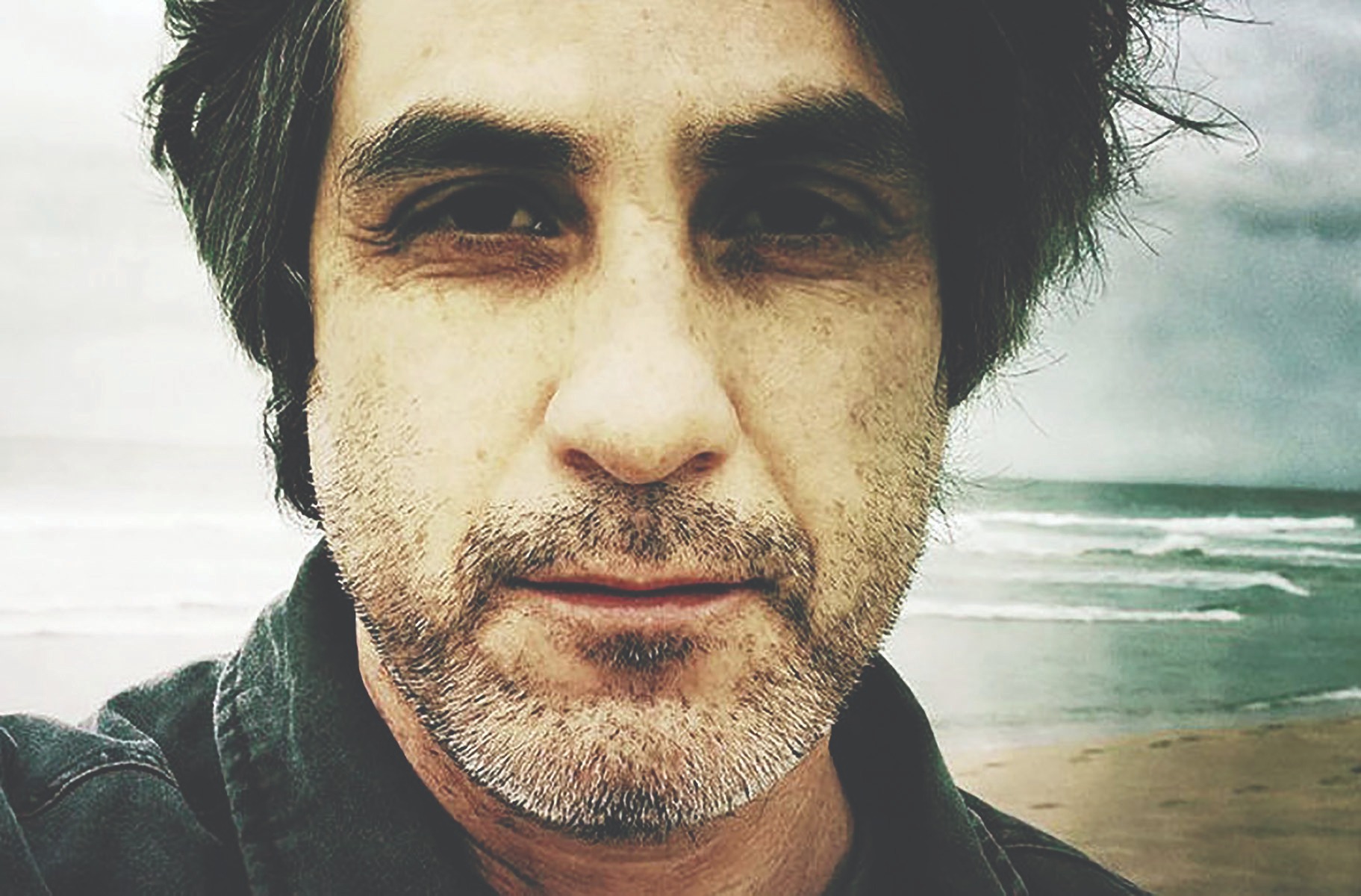
Luis Camara has added another accomplishment to an impressive cinematic career. This year, the longtime CSUMB Cinematic Arts professor wrote a screenplay for a comedy that became a box office success in Mexico.
The film “Me estás matando Susana,” (you’re killing me Susana) is based on a novel by the prominent Mexican author José Agustin. It stars Gael Garcia Bernal and Verónica Echegui and opened on 600 screens in Mexico, coming in 7th at the box office on opening week. Reviews have been positive, with major newspapers such as El Norte, Reforma and Exelsior praising the film and screenplay.
In a video review, critics for El Norte called Camara’s screenplay “a solid script” and that the “well executed film” captures “the essence of the Mexican Onda literary movement, while actualizing it to the present day.”
Originally from Mexico City, Camara is a graduate of the American Film Institute. He has directed the award-winning short films “Endgame” and “Ex Voto,” and the feature films “Steel Trap” and “Silencio,” winner of the best feature award at the Los Angeles Fear and Fantasy Film Festival and best cinematography award at the Queens International Film Festival.
CSUMB students, local researchers to benefit from NOAA Grant

CSUMB is one of six universities across the nation that will benefit from a new five-year, $15.5-million National Oceanic and Atmospheric Administration (NOAA) Center for Coastal and Marine Ecosystems. NOAA has approved a total of $3 million to be awarded this year for the first phase of the new NOAA Cooperative Science Center.
“With CSUMB’s portion of the funding, we will be able to support between six and eight students per year on our campus,” said CSUMB School of Natural Sciences Associate Professor Corey Garza.
Graduate students will be eligible for two years of funding; including a yearly stipend of $20,000 and the full cost of tuition. Graduate students also receive a $10,000 scholarship to support research and summer funding up to $5,000 to support research activities at a NOAA facility.
Undergraduates funded through the center will receive one year of stipend support up to $12,000 and a research account of $1,000. Faculty who mentor students through the center will have access to funding to support the purchase of supplies and non-capital equipment for their respective groups. Access to NOAA vessel time and post-doctoral funding will also be available.
Research topics include: fisheries, eco-forecasting, terrestrial impacts on coastal systems, climate change, ocean acidification and ocean engineering.
Bachelor of Science in Nursing program at CSUMB receives CCNE accreditation
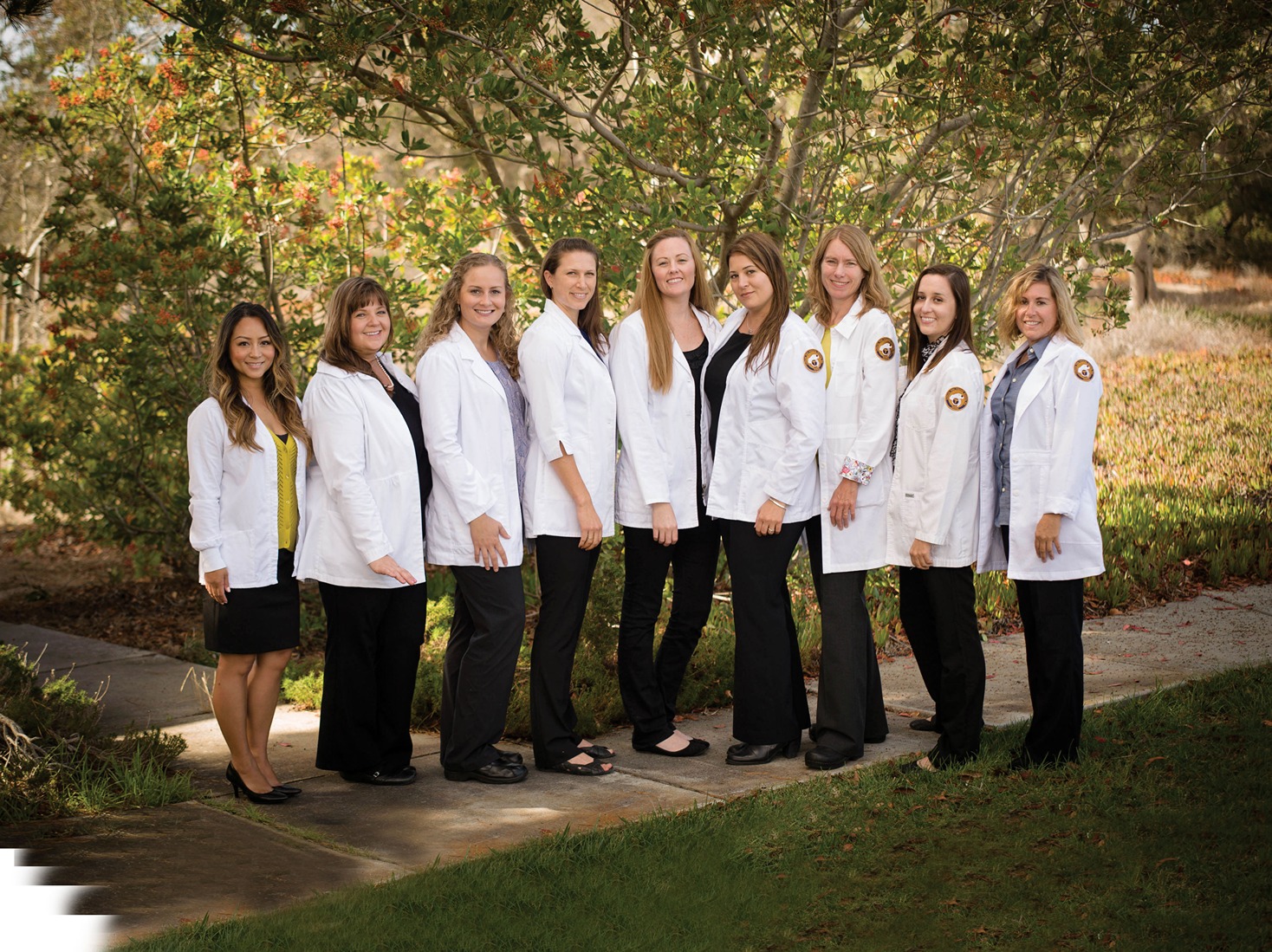
CSU Monterey Bay’s Bachelor of Science in Nursing (BSN) is now the only Commission on Collegiate Nursing Education (CCNE) accredited program in the tri-county region.
Bachelor-prepared registered nurses (RNs) advance the nursing profession and qualify RNs for advanced professional career opportunities in a wider array of healthcare settings.
“BSN graduates are prepared with an increased knowledge of the theoretical practice of nursing and in turn are able to provide a broader spectrum of healthcare to our community,” said CSUMB Department of Nursing Director, Savitri Singh-Carlson, who has a doctorate in nursing. “This program will help address a critical healthcare gap in the region by increasing the number of bachelor-prepared RNs.”
While there is no direct entry BSN program at CSUMB, partnerships and pathway programs with local community colleges facilitate a seamless transition from associate degree in nursing (ADN) and RN programs to the CSUMB BSN program. By earning a BSN, RNs are also prepared to pursue a master of science in nursing (MSN).
According to Singh-Carlson, the CSUMB Department of Nursing hopes to submit a proposal for a MSN degree in 2017 with hopes that the degree could be offered in 2018.
CSUMB Science and Environmental Policy is now the School of Natural Sciences
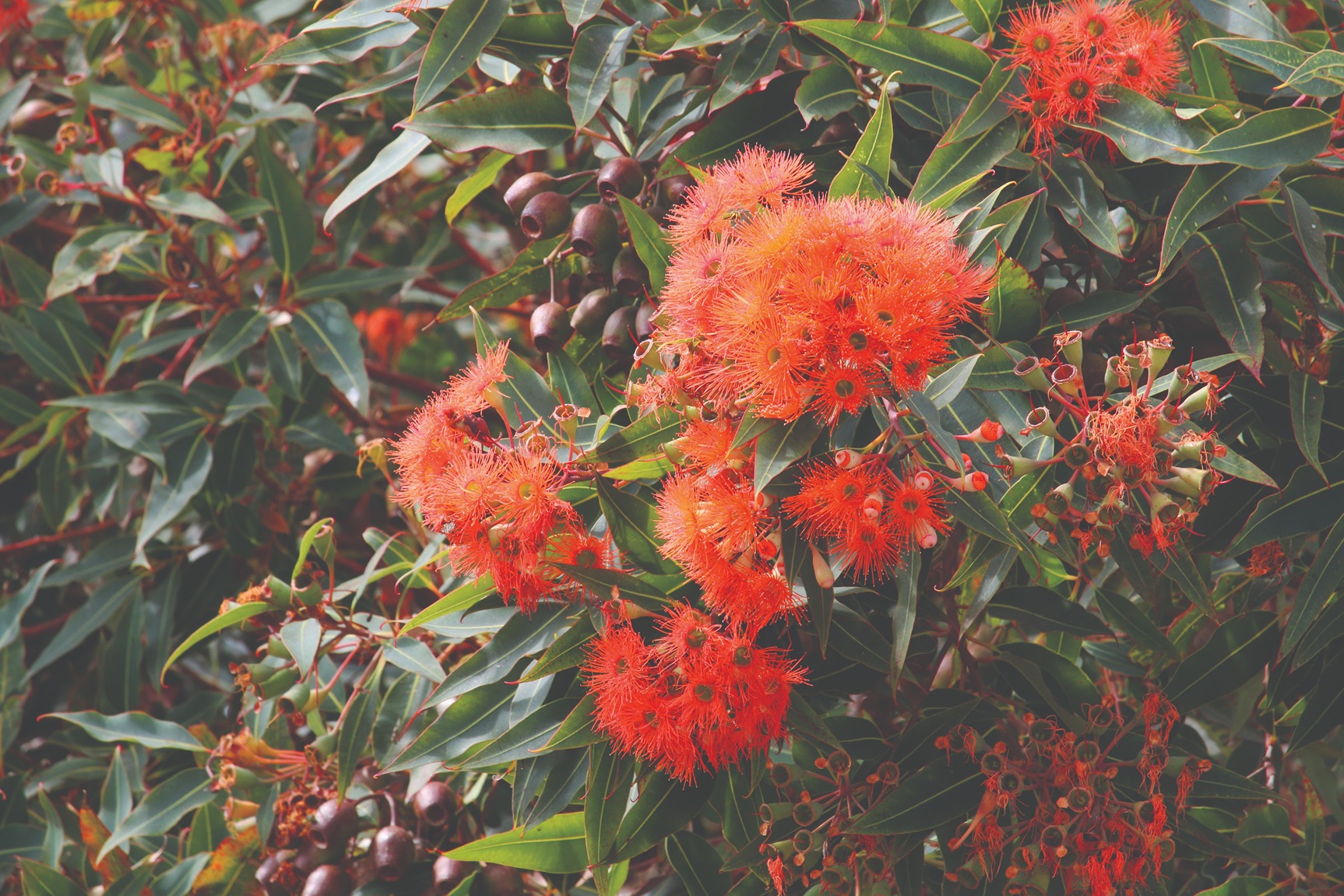
The CSUMB Science and Environmental Policy Division has a new identity. The division has changed its name to the School of Natural Sciences (SNS), and will continue to be a part of the College of Science, together with the School of Computing & Design and the Mathematics & Statistics Department.
The SNS is the home for an array of academic degree programs, research laboratories, and community outreach programs. All SNS programs provide outstanding opportunities for over 1,300 students to learn how to use interdisciplinary science, technology and communication skills to serve community needs.
The SNS places a heavy emphasis on preparing students for rewarding careers and more advanced academic study in fields related to environmental resource assessment, management, and policy. The faculty provides particular strengths in marine and terrestrial biology and ecology, watershed science, marine science, molecular biology and genetics, environmental education, and advanced technologies for geospatial data collection, analysis and visualization.
News Briefs
Enid Baxter Ryce’s Film Recognized

CSUMB professor and experimental filmmaker Enid Baxter Ryce had her Fort Ord feature film “A Land for War” highlighted in March by The Library of Congress’s Veterans History Project in Washington D.C.
The film was also screened, along with a collection of her students’ documentaries in “Fort Ord: A Sense of Place,” at the National Gallery of Art as a part of the D.C. Environmental Film Festival.
In “A Land for War,” Ryce documents the lands and ruins of the historic Fort Ord and portrays the impact of the military base on the terrain and people. The film’s original musical score is by CSUMB Music Instructor Lanier Sammons.
The student film program, “Fort Ord: A Sense of Place,” is a compilation of the university students’ documentary and experimental shorts focused on the ecology, community and history of the base. The films also feature oral histories collected for the Library of Congress Veterans History Project.
Congress created the Veterans History Project in 2000 to collect, preserve and make accessible the first-hand remembrances of America’s war veterans from WWI through current conflicts, so that future generations may hear directly from veterans and understand the realities of war.
Student Supports Immigrants with Scholarship Program

Daisy Leon Melendrez, a CSUMB service learning student leader, has been selected as a Principal Community Scholar for her community project to provide information to immigrant communities about their constitutional rights.
Melendrez is among 20 college students from Iowa and California selected for the first class of the new program.
The project addresses fears and anxieties of those in immigrant communities about impending changes to immigration policy. The recipients were selected by Principal, Iowa Campus Compact and California Campus Compact after being nominated by faculty or staff from their college or university. They underwent a rigorous review process.
Melendrez is a collaborative health & human services major. She has been the liaison to the Central Coast Citizenship Project in East Salinas.
“We are excited that Daisy has been selected as a Principal Community Scholar for her community project to provide information to immigrant communities about their constitutional rights,” said Pamela Motoike, professor at the CSUMB Service Learning Institute and program adviser.
CSUMB Signs Partnership with Universidad de León, Spain
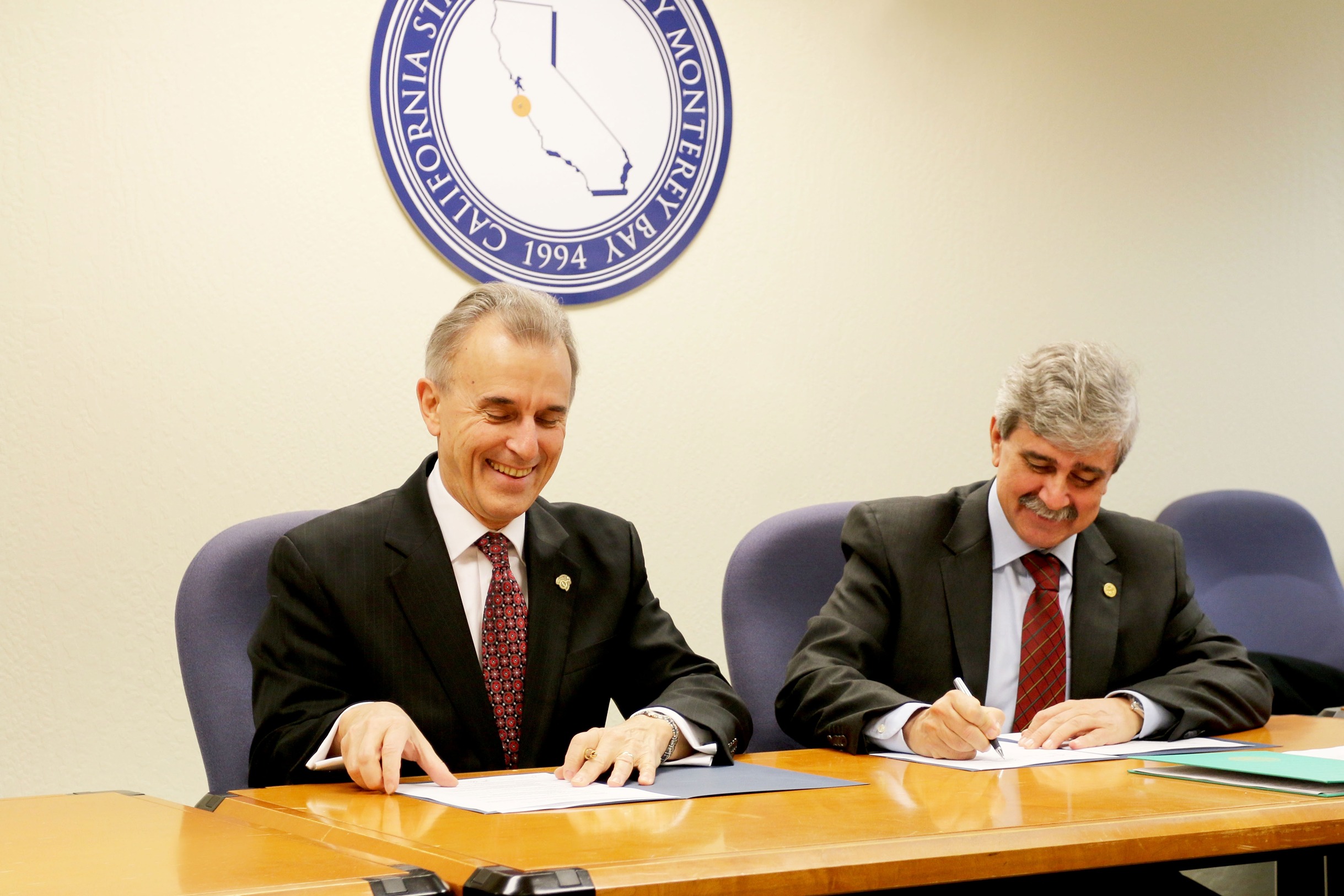
California State University Monterey Bay and Universidad de León, Spain signed a memorandum of understanding recently, creating an international partnership that opens great possibilities for exchange of students, professors and educational resources.
Universidad de León delegates President Juan Francisco Garcia Marin, Professor Oscar Fernandez and Professor Eduardo Compadre toured the CSUMB campus, and met with students, faculty and staff for an official welcoming and signing ceremony to commemorate the new international partnership between the two universities.
The new alliance will allow the exchange of undergraduate students between both universities during certain academic periods. In addition, the alliance will facilitate the opportunity to help each other learn a second language, study a new culture through personal interaction and share best teaching practices in a variety of subject areas.
CSUMB Renovates Veterans Resource Center
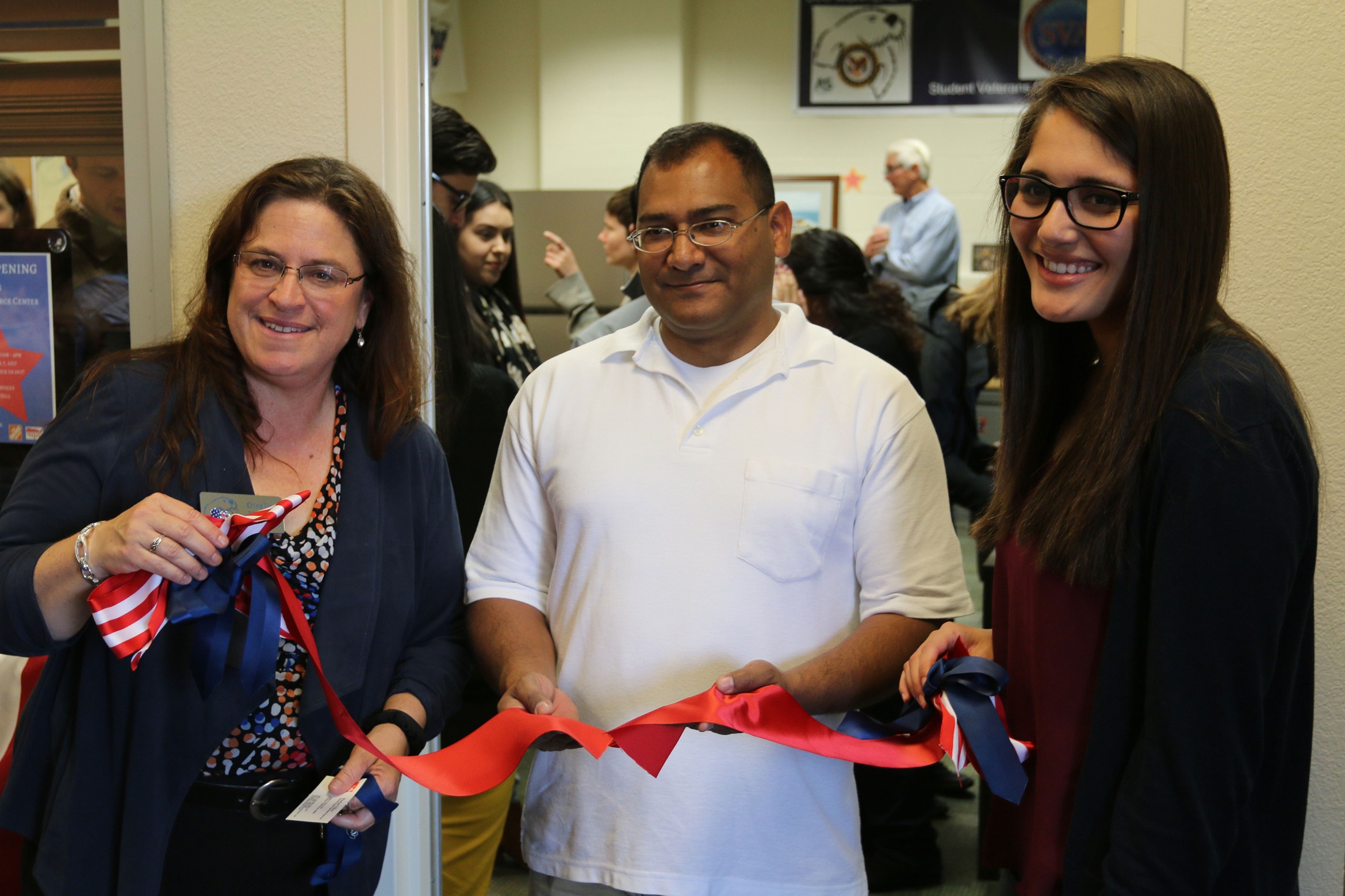
CSUMB recently celebrated the renovation of its Veterans Resource Center, thanks to a generous donation of $6,000 by The Home Depot Foundation (THDF).
The renovations, which include new carpeting and furnishings, were received from THDF in partnership with the Student Veterans of America (SVA). The new and improved Veterans Resource Center offers an inviting atmosphere, allowing veterans to seek assistance with benefits, gain access to support services and build social support networks to motivate each other to stay in college.
“The veteran students on campus finally have a fully furnished space where they can study, relax and connect with each other when not in class,” said CSUMB Veteran Services Coordinator Giselle Young.
CSUMB Student Veterans Organization President, business major and Army veteran Gilbert Bernabe says the Veterans Resource Center has become a home away from home. He utilizes the center more now than during his first semester. “That is all thanks to the work of Giselle, and the sponsors, for making the resource center feel welcoming,” said Bernabe.
“We were very lucky to have received the generous financial support from The Home Depot Foundation,” said Young.